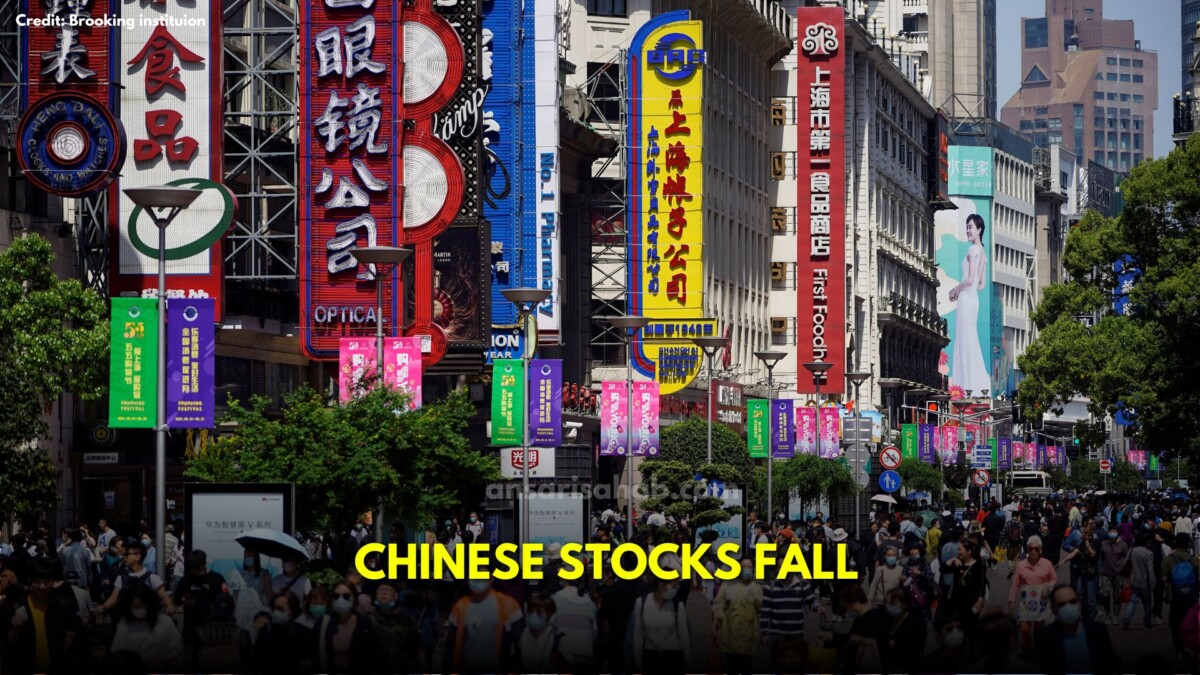
China, the world’s second-largest economy, is currently at a pivotal juncture with recent economic events causing significant ripples in global markets. The annual Central Economic Work Conference held on December 13, 2023, failed to meet investor expectations, triggering a sharp decline in Chinese stocks and iron ore prices. This disappointment raises concerns about the immediate and long-term health of China’s economy and its global implications.
The Disappointing Economic Meeting:
The Central Economic Work Conference, a crucial event that sets the tone for China’s economic policies, fell short of investor expectations. Despite emphasizing industrial policy and technological innovation, the absence of specific measures to address pressing economic issues such as the struggling real estate sector and weak domestic demand disappointed investors.
Stock Market Turmoil:
The immediate aftermath of the economic meeting saw a substantial drop in Chinese stocks. The Hang Seng China Enterprises Index plummeted by 0.9%, and the CSI 300 benchmark of onshore shares slid by 0.8%. The lack of clarity on how the government plans to boost domestic demand, a key driver of economic growth, fueled investor concerns and contributed to the market downturn.
Iron Ore Prices Reflect Economic Health:
The decline in iron ore prices, a crucial commodity in steel production, further highlighted investor apprehensions. Iron ore prices dropped by 4.5%, signaling worries about a potential slowdown in China’s construction sector. Traditionally viewed as a barometer for China’s economic health, the decline in iron ore prices underscores the skepticism surrounding the nation’s economic outlook.
Government’s Response and Commitment:
In response to the market turbulence, the Chinese government pledged to take steps to boost domestic demand in 2024. The State Council outlined measures, including increased fiscal spending and support for the services sector. Consideration of further monetary policy easing, such as interest rate reductions and reduced reserve requirements for banks, aims to stimulate borrowing and investment to spur economic growth.
Analysts’ Cautious Outlook:
While the government’s commitment to boosting domestic demand is a positive signal, analysts remain cautious about the outlook for the Chinese economy. The ongoing real estate crisis, coupled with global economic headwinds, poses significant challenges for policymakers. Concerns persist regarding the effectiveness of the proposed stimulus measures and the potential for increased financial risks.
Suggested: Sparking Stock Surge as Macy’s Receives Potential $5.8 Billion Buyout Offer
Global Implications:
China’s economic health has far-reaching implications for the global economy. As a major player in global trade, a slowdown in China could lead to lower commodity prices, weaker global growth, and job losses in other countries. The uncertainty surrounding China’s economic trajectory adds to existing global concerns about inflation and potential recessions in major economies.
Long-Term Vision:
The emphasis on “high-quality development” in the economic meeting may signal a long-term shift in economic priorities. While this approach aims for sustainability, it raises questions about the short-term challenges and the urgency to address pressing economic issues.
Trade War and COVID-19 Impact:
The ongoing trade war with the United States remains a significant risk factor for China’s economic stability. A resolution could positively impact future growth. Additionally, effective management of the COVID-19 pandemic’s economic fallout is critical for achieving the government’s economic goals.
Investor Caution and Market Uncertainty:
The lack of specific details and clear policy actions leaves investors in a state of uncertainty. The market is likely to remain cautious, awaiting further policy announcements and tangible actions from the government. The potential for increased market volatility looms as the global community observes China’s economic developments.
Conclusion:
China stands at a crossroads, grappling with economic challenges that have triggered a significant market downturn. While the government’s commitment to boosting domestic demand and focusing on “high-quality development” is commendable, the immediate economic challenges demand more concrete and targeted measures. The world is closely watching China’s economic trajectory, understanding that its success or failure has profound implications for the global economy. The uncertainties surrounding the trade war, COVID-19, and the effectiveness of stimulus measures leave the economic outlook uncertain. As China navigates these challenges, the world awaits to see how the nation’s resilience and policy responses will shape its economic future and influence global markets.








